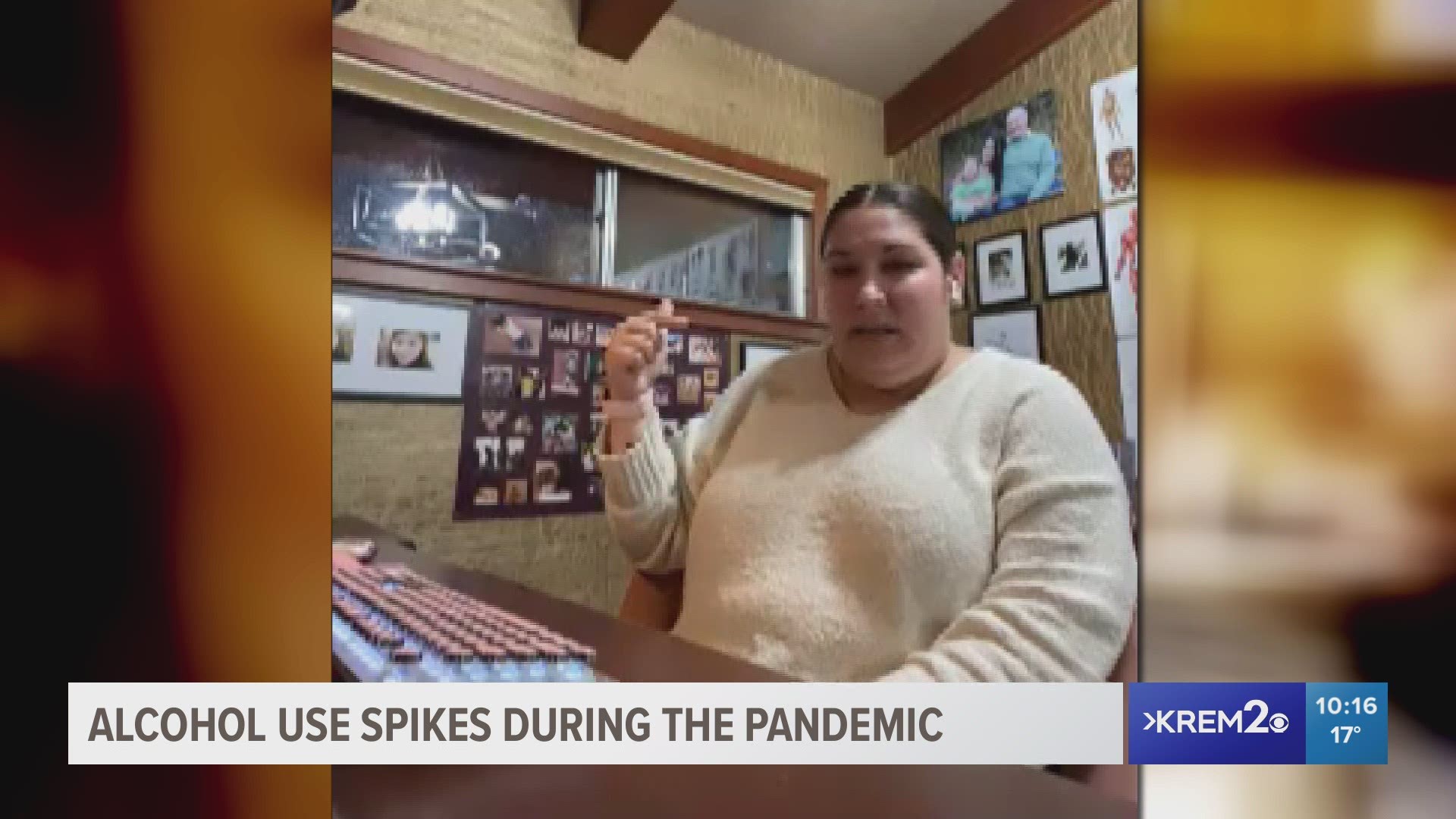Americans are drinking 14 percent more during the coronavirus pandemic, according to new research by the RAND Corporation and the Indiana University School of Public Health.
The study also showed women are heavily drinking, or drinking four or more drinks within a couple of hours, 41 percent more in 2020 than in 2019. The stats may be surprising, but two months into 2021, many people are still trying to obtain the goal of drinking less.
A Spokane woman named Elizabeth said balancing her full-time job and her daughter learning from home was getting hard. KREM 2 is only identifying her by her first name.
“It feels at some point, Mt. Vesuvius has erupted but it’s all on your shoulders” Elizabeth said.
Elizabeth said she turned to alcohol to help her relax after a long tough day. During the pandemic, she noticed how often she was drinking, and that she may have a problem.
"You know it’s 2 o’clock on a Saturday and you have a full wine glass, this is not healthy," she said.
However, instances of people drinking more heavily after the pandemic is quite common. According to the National Institute of Health, alcohol consumption is a serious and growing public health problem.
Bree Sutton, a counselor and life coach in Spokane, said it’s not surprising, as alcohol is an easy vice, and simply makes people feel good.
“The normal coping skills are stripped away, and here we are at home, [there are] no breaks for many of us [with] kids are at home. So, alcohol is an easy thing to go to,” said Sutton.
There is good news though. Sutton said if people have their mind and heart set on changing their lifestyle and achieving their goals, it’s quite possible. The biggest thing is to smart small, according to Sutton.
“Start a morning routine. It doesn’t have to be anything big. It could be five minutes of deep breathing, set an intention, a longer mediation and movement practice. The goal is to start your morning off with intention," Sutton said.
If the drinking is serious, meaning drinking is impeding with work, family life, or someone is spending more money on alcohol than paying bills for example, Sutton suggested they need to get professional medical help.
“If someone wants to stop drinking, it is important to seek help. Withdrawing from alcohol can be dangerous, so in making a big change like this, it is important to get help from a medical professional. Additionally, a medical professional can help someone understand the extent of a drinking problem and can recommend next steps, such as inpatient or outpatient services, counseling, rehab," Sutton said.
As for Anne, she is continuing to pursue a healthy lifestyle by working with a life coach to help take control of her life, drinking and transitioning to a healthier lifestyle.
“I’m waking up with a renewed sense of purpose. Tomorrow is a new day. Let’s beat this thing,” said Anne.
If you or anyone you know is struggling with alcohol, there is a regional hotline available at 877-266-1818.

